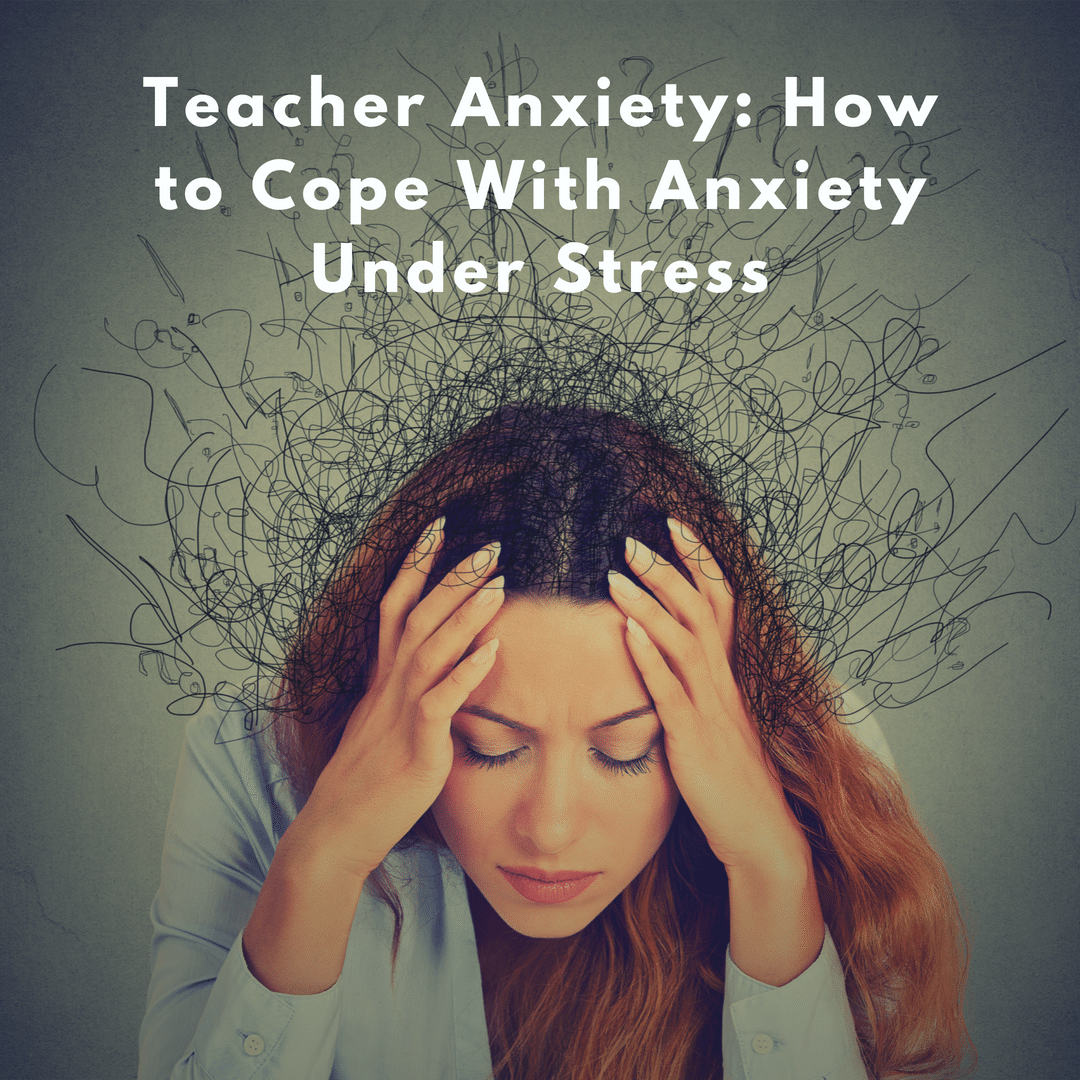As teachers deal with an enormous amount of stress that grows every year, very little research has actually shown the impact of that stress on teachers emotionally. Recognizing this fact, a preliminary study completed in 2014 in order to investigate teacher working conditions showed that 11% of teachers suffered from anxiety (Borrelli, Benevene, Fiorilli, Damelio, & Pozzi). Since very few peer-reviewed articles exist that explore teacher anxiety and how to cope with it, I did some research via social media about how anxiety impacts teachers and what they do to cope with it.
What Teacher Anxiety Looks Like
Anxiety might look different to different people, so it’s important to recognize that everyone experiences it differently. For Blake W. in North Carolina, anxiety is “crippling” and he goes on to say “only those close to me know how bad it is; I hide it the best I can. However, the second I get off work each day, my mind spins…replaying every single conversation and interaction — constantly on repeat. Oftentimes, I call my friends/family to talk through it. However, this behavior has many unintended consequences, and eventually deteriorates and/or exhausts these relationships.” If you have ever wondered if you are the only one who lies awake at night replaying situations or incessantly worrying, there are many other people, including Blake, who go through the same thing. Other teachers feel anxiety about what got missed during the day, including Megan B. from Arkansas, who says that while she has a coping mechanism to get past this anxiety, sometimes she still forgets something, and she “can’t get back to sleep for hours.”
According to the Mayo Clinic, there are many other common symptoms of anxiety, including, “feeling nervous, having a sense of impending danger, having an increased heart rate, breathing rapidly, sweating, trembling, feeling weak or tired, trouble concentrating or thinking about anything other than the present worry, having trouble sleeping, experiencing gastrointestinal (GI) problems, having difficulty controlling worry, and having the urge to avoid things that trigger the anxiety.” If you experience any of these symptoms, the following advice from other teachers who experience the same thing might help you cope with it.
Coping Mechanisms Other Teachers Use
So, what can you do if you find yourself experiencing teacher anxiety? Thankfully, a few teachers have picked up some coping mechanisms that might aid you in your relief of symptoms. For Blake W. in North Carolina, the practice of “grounding,” a way of preventing anxiety attacks, has been particularly helpful, but he also recommends “reading the book Taming Your Gremlin” as a way to cope. In order to deal with symptoms created by an overwhelming list of things to do, another person on Facebook had some useful advice. “I list out what I need to do for the day, realistically, and get it done. It helps me not wake up in the middle of the night because I forgot something,” advises Megan B. from Arkansas. For others, making connections and building relationships with others helped out, like in the case of Melanie O. from Southern California, who asserted that “Just knowing that someone had my back helped ease the stress. We now regularly meet during lunch, happy hours, and have even gone on a few ‘girls trips’.”
One teacher, Karen B. from Oakland, California, recounted how she dealt with anxiety in her early years of teaching, stating that she would remind herself “that the students were as nervous as [she] was and [she] would try to remember what it felt like sitting in the classroom. Then [she] could create an atmosphere that calmed (or uplifted) all of [them].” Karen also agreed with Melanie’s advice to make connections and build relationships with other teachers in order to help with overwhelmingly anxious feelings. Just as everyone experiences anxiety differently, everyone also copes in very different ways. Maybe you have advice on how to handle stress when it makes you feel anxious.
How do you cope when anxious feelings take over?
Please share your advice in the comments so that others may benefit from your wisdom.
Sources:
Anxiety disorders. (2018, May 04). Retrieved July 29, 2018, from https://www.mayoclinic.org/diseases-conditions/anxiety/symptoms-causes/syc-20350961
Borrelli, I., Benevene, P., Fiorilli, C., Damelio, F., & Pozzi, G. (2014). Working conditions and mental health in teachers: A preliminary study. Occupational Medicine,64(7), 530-532. doi:10.1093/occmed/kqu108






